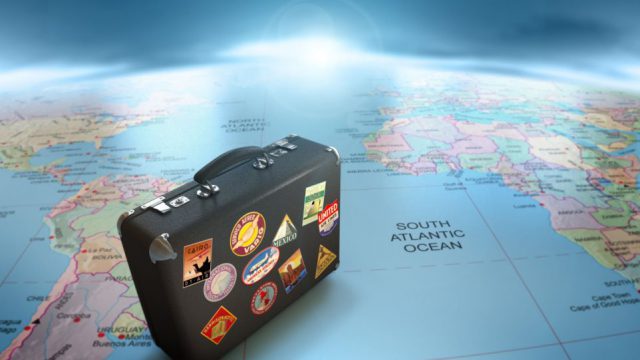Europ Assistance released the findings of its 19th Annual Holiday Barometer, conducted by Ipsos, which looks at the summer holiday plans and travel preferences of respondents in twelve countries across the globe.
This year’s survey found that the number of Europeans (63%) and Americans (68%) who indicated that they would be going on holiday this summer held stable (64% and 68% respectively in 2018). Brazil, like the US, also held steady with 68 percent of respondents indicating they have summer travel plans (same as the year prior).
There were several interesting differences when it came to responses from Europeans, Americans, and Brazilians this year – the first being related to budget.
In Europe, budgets for travel increased by 3 percent in 2019 to an average spend of €2,019, a number that increases to €2,099 when looking only at counties that make up the Euro Zone (excludes the United Kingdom, Switzerland, and Poland). The increase in the European budget this year is mainly driven by France, Spain, and Germany with respondents from each country indicating that their travel budget increased by 10, 8, and 4 percent respectively. Meanwhile budgets in the United States dropped by almost 10 percent from the year prior to $2,373. Brazil, Belgium, and the United Kingdom all saw 3-5 percent decreases in their travel budgets from the year prior as well.
As in years prior, budget was the top factor when it came to vacation decision-making. Americans and Europeans both ranked the climate and the possibility of taking part in leisure and cultural activities in their top-three factors – while Brazilian’s prioritized the risks related to health and terrorist attacks in their top-three decision-making factors. Concerns around terrorism have decreased in Europe (42% down 6 points from the year prior), America (33% down 7 points from the year prior), and Brazil (61% down 7 points from the year prior). Interestingly, Europeans overall indicated they were much less fearful of travel related risks in general with risk of a personal attack (38% down 3 points from the year prior) and the risk of social unrest (29% down 4 points from the year prior) also dropping several points from prior years.
This year’s Holiday Barometer also found that Americans (28%) and Brazilians (36%) are more interested in atypical activities like staying at a local’s home compared to Europeans (27%).
While respondents from France, Spain, Poland, and Portugal were the most interested in these new kinds of activities amongst Europeans, respondents from the U.S. are the most adventurous when it comes to nature-based activities – with 46 percent indicating that they will go camping, versus 28 percent of Europeans and 22 percent of Brazilians. Brazilians were the most adventurous when it came to atypical lodging activities like opening their own homes to travelers (19%) and swapping homes (14%). Conversely, just 8 percent of Europeans and 7 percent of Americans will have travelers stay with them and just 6 percent (Europeans) and 5 percent (U.S.) will do a home swap.
Antoine Parisi, CEO of Europ Assistance: “This year we’ve seen that overall the situation globally is stable, the summer holiday remains an important part of life in Europe, the US and Brazil. It’s interesting to understand the differences in budget, one of the stand-out findings of this year’s survey. Europeans are prepared to spend more, 3% more in 2019 driven by France, Spain and Germany. As an assistance provider, it’s important we monitor both the preferences and concerns of our customers, so If a problem arises, we are ready to deploy our resources to bring them from distress to relief anytime, anywhere.”
Methodology




